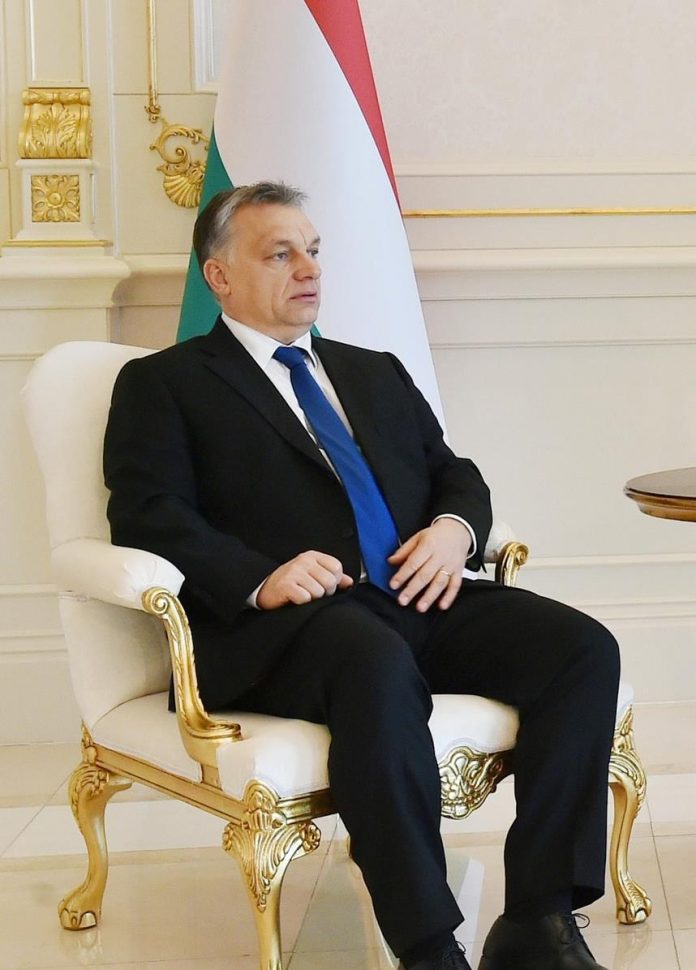
By Zoltan Kesz, government affairs manager at the Consumer Choice Center and a former member of the Hungarian Parliament.
When Hungarian Prime Minister Viktor Orban announced that yet more products would be price capped in grocery stores by government decree, it was clear from the start that this was more about power and control than about combatting inflation.
Following a nationalistic playbook, it looks like Orban is using price caps to make business untenable for foreign-owned grocery chains, hoping they will decamp the country and leave his connected friends with their own monopolies. This has been a decade-long plan, chasing every corporate chain not owned by a Hungarian outside their borders.
That he would pursue this specific policy, which will lead to severe shortages for grocery customers and fuel the over 20% inflation rate, making consumers worse off, reveals how much he’s willing to sacrifice the livelihood of Hungarian households for his delusions.
Cronyism
The Orban playbook has now been played out for quite a while. It begins, as always, with a boastful policy to “help” his countrymen. But it always ends with a friend, colleague, or crony of Orban gaining a monopoly to enrich themselves at the expense of everyone else.
It all began over a decade ago when Hungary introduced a moratorium on opening supermarkets larger than 400 square meters. This was widely seen as helping the domestic chains. Any other chain could only open by following a tedious administrative process in which the government would approve (but usually deny) larger grocery stores.
Amid the pandemic, further burdens were put on larger retailers to mount the pressure. For example, businesses with over 1 million EUR net revenue were obliged to pay higher taxes progressively, in addition to paying corporate taxes. As most Hungarian-owned stores are organized as franchises, only a few were affected by this extra tax burden. The foreign chains, however, were the prime target.
Orban trashed Hungary's economy and currency, stands on the wrong side of history on the most important issue in living memory, and created a fundamentally corrupt and captured state, but he is playing his weak hand with the EU rather strongly. Will the EU really give in (again)? https://t.co/srcCvoNxui pic.twitter.com/PKselXz2GX
— Daniel Kral (@DanielKral1) November 11, 2022
Price caps
The governing party has successfully played the xenophobic card throughout its 12-year-long rule. Anything not Hungarian is considered dangerous, harmful, or just too capitalist.
Fidesz’s campaign message in the last election centered on leaving money with the people and helping the poor. The first step was to force retailers with annual revenue of over 250 million EUR to hand over food two days before the best-before date to state-owned charity organizations.
In January 2022, price caps on several food products were introduced. Many observers at the time thought that after their election victory, the price caps would disappear. Still, the Hungarian government miscalculated two things: the European reaction to the Russian aggression in Ukraine and the fact that the EU would withhold funds because they abridge the rule of law.
"If it is serious about fighting cronyism, the EU could cut its spending"
New article, by @pietercleppe:https://t.co/65yxMaMS1F #EUCO #MFF #NGEU #Orban #Hungary #EU— BrusselsReport.EU (@brussels_report) June 24, 2021
👉Key stories from yday u cannot miss
– EC set to recommend suspending full €7.5bn of EU funds for Hungary.
– Surprising decision as EU officials expected smaller figure taking into account Orban’s partial progress under conditionality mechanism. https://t.co/StXRigTPcz— Jorge Valero (@europressos) November 24, 2022
Suffering from high energy prices and the lack of EU funds, the Orban government decided to extend the price cap, communicating that it was doing everything in its power to help the Hungarian people.
The worst inflation of Europe
However, at the moment, Hungary finds itself with the worst inflation rates in Europe and soaring food prices. It is the end of the Hungarian “economic miracle,” funded by EU taxpayers.
Even now, the government is continuously adding food products to its price control list. Whether it is to hurt big supermarket chains or just not to lose popularity is still unclear.
As a result of these policies, one of the big grocery chains is already selling its assets in Hungary. Other players are trying to survive by raising the prices of other products, which is terrible for consumers.
The same people Orban pretended to save from evil ‘multinational greed’ will pay the price: First, by having to pay more for everything else, and second, they may be left with Hungarian stores only, little choice, and very high prices.
In this article by @libe I talk about the bad economic effects of the price caps imposed by the Hun govt. @ConsumerChoiceC https://t.co/NIr71yGLM6
— Zoltán Kész (@KeszZoltan) November 24, 2022
Check out the eighth episode of the Brussels Report Podcast!
This time, our guest is former Hungarian MP Zoltan Kesz @keszzoltan:https://t.co/bPZEWsKPmn #hungary #orban #EU
— BrusselsReport.EU (@brussels_report) July 26, 2021
Disclaimer: www.BrusselsReport.eu will under no circumstance be held legally responsible or liable for the content of any article appearing on the website, as only the author of an article is legally responsible for that, also in accordance with the terms of use.












